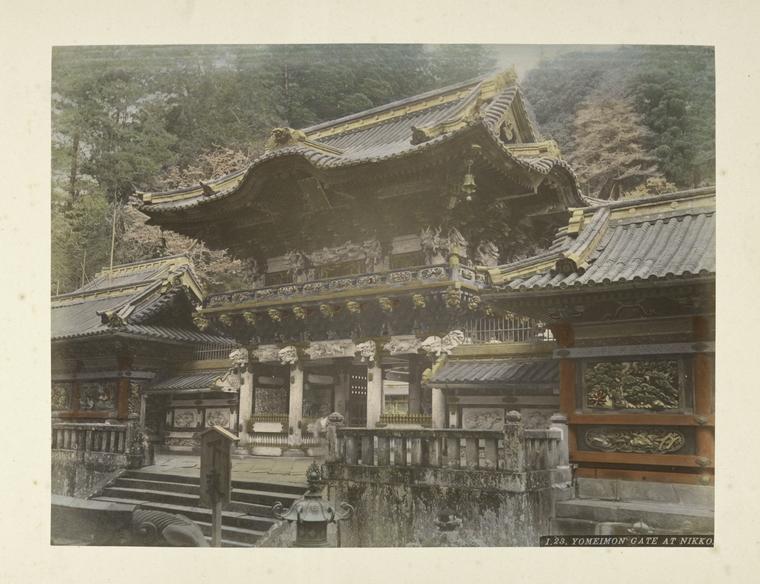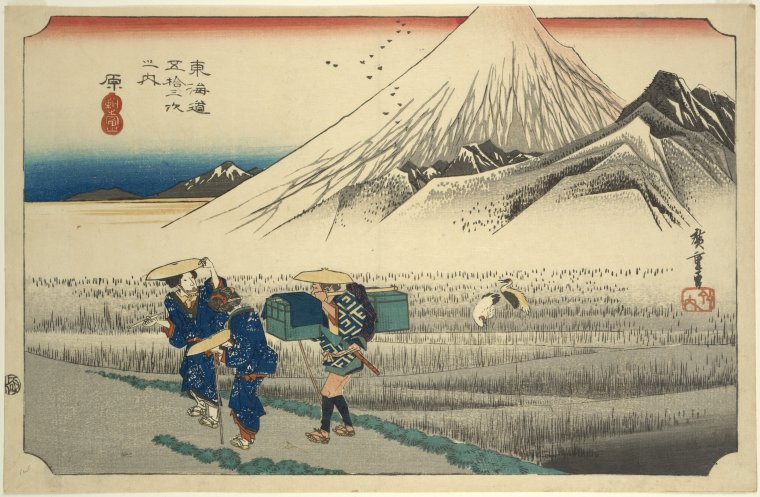Stuff for the Teen Age, The Ticketless Traveler
Think Japan is all Manga, Sushi, and Pocky Sticks?
Harajuku? Geisha? Robots? Awesome! Japanese culture has been an obsession of mine for a while now, as well as for the teenagers at my branch, so when we recently had the opportunity to invite Lucia Brea, Fukui Friendship Ambassador, to stop by and talk to the Kingsbridge Library's Teen Advisory Group, I jumped at the opportunity. Lucia spent four years in Japan through the JET Program teaching English to students of all ages in the Fukui Prefecture, and I was able to sit down with her after her visit to ask her a few questions about her experience:
 What is the JET program, and would you recommend it for other people? Are there other ways to go about living in Japan as a foreigner?
What is the JET program, and would you recommend it for other people? Are there other ways to go about living in Japan as a foreigner?
The JET Programme stands for Japan Exchange and Teaching Programme, now in its 26th year, which aims to promote grass-roots international exchange between Japan and other countries. I would highly recommend it to anyone who has a passion for developing strong relationships with communities and the drive to live in Japan for an extended period of time. It is an opportunity to experience Japan and continue to enhance relationships between Japan and their home country like I did at the New York Public Library. There are many other ways to live in Japan as a foreigner, the JET Programme is one of the best, but there are many other teaching opportunities through private companies, studying opportunities for students and there are also many international companies that call Japan home to which they offer opportunities to foreigners.
How is living in Japan different from living in the U.S.?
Japan and the U.S. are very different in various forms, particularly coming from New York to Fukui. Fukui is a slow moving, nature based kind of environment, very different from what I was used to after graduating from college in New York City.

Adjusting to a different culture was much more shocking than I had previously thought. However, I had a very positive outlook on things and the people were so helpful that is made it easier to adjust. I had previously thought it was going to be much more like the time I had moved from the Dominican Republic to the United States, but it was not anything like it. As an adult, it is a bigger adjustment than as a child and Japanese culture is very different, but amazing at the same time.
What was the most surprising thing to you about Japan and about living there? Is Japan just like it is depicted in anime and manga?
Anime and manga was for me my first taste of what I thought was Japan, which is the case for many people. However, Japan is so much more than what one imagines. Sure, it is heavily influenced by it but there is so much more of the traditional and technology that is not necessarily mentioned. Japan is not only Tokyo, but Japan is nature, a serene tranquility and an amazing lifestyle that I was able to experience in Fukui. Most of Japan is not robots and technology, it is a whole different kind of life.
You recently talked to a group of teens about Japan at the library. Do you have any thoughts on their reactions or previous knowledge or misconceptions about Japan?
I was very surprised on how much the teens at the library knew about Japan, and it was a pleasure for me to share my experience with them and hopefully enhance their knowledge about Japan. I also hope that I encouraged them to go visit sometime in the future and continue to experience Japan through resources available at the New York Public Library.

Fukui is totally different from Tokyo, it lies along the Sea of Japan, not far from Osaka or Kyoto. Beautiful place year-round, from snow capped mountains that are amazing for skiing during the wintertime to beautiful sandy beaches during the summer time. It is a beautiful natural environment with deep Japanese traditions that can be enjoyed by everyone. There is so much to explore, so much to experience, so many great people to meet. Fukui to me was the real Japan, and there was a reason why it is considered the happiest place in Japan. There are endless opportunities in Fukui, from making Japanese paper by hand, making soba (buckwheat noodles), piecing together a bamboo doll, staying at the Eiheji monastery while experiencing the Soto sect of Zen Buddhism and just overall taking in the beauty of rural Japan.
Can you talk a little about the tsunami, how the country was affected, what it meant for people living close by, or even as far away as Fukui and what the after effects on the country were?
The tsunami had a deep effect on the people of Japan, from close to far away. The earthquake was felt throughout the main island, however it was very different to what is usually experienced particularly due to the aftermath that was the Tsunami. Being in Japan through such a disaster was almost like reliving 9/11 in New York. It was something that is engraved in your memory for the rest of your life. Six months after the incident, some friends and I volunteered in the Tohoku area, where the Tsunami took place, and my experience was something that I will never forget. Japanese people are resilient and it was so surreal to even imagine that to this day there are earthquakes in that region, and that people that survived the Tsunami are still living there trying to make their lives as normal as possible and rebuild.
If people want to help the Tsunami victims, what is the best way?
There are many ways, for example the Red Cross, as well as this a Global Giving Project which particularly focuses on helping orphans rebuild their lives post Tsunami.
Any favorite Japanese authors you can recommend? Music? Movies?
 I am a great fan of Haruki Murakami, his work is infused with Japanese traditions as well as the western influences. He has to be one of my favorite Japanese authors of all time, Kafka on the Shore is a must read. Movies by Studio Ghibli is the Murakami for the entire family. Ponyo, Princess Mononoke and Spirited Away among others.
I am a great fan of Haruki Murakami, his work is infused with Japanese traditions as well as the western influences. He has to be one of my favorite Japanese authors of all time, Kafka on the Shore is a must read. Movies by Studio Ghibli is the Murakami for the entire family. Ponyo, Princess Mononoke and Spirited Away among others.
You can find these and more by visiting your local library branch:
Check out books about Japan, read books by Japanese authors like Murakami, Oe, Kanehara, Kawakami, Kirino, Miyabe, Ryu Murakami, and Yoshimoto, and check out Japanese manga, anime, and movies.
You can also get a taste of Japanese food and culture right here in New York City:
Japan Week is an annual celebration of Japanese culture and cuisine in Grand Central Terminal’s Vanderbilt Hall which ends March 21st this year, and Japan Day is an annual celebration of traditional and contemporary Japanese culture held in Central Park which is coming up on May 12th, 2013.
Also visit some of these Japanese Cultural Centers for lectures, events, art exhibits and more:
Japan Society, Tenri Cultural Institute, Donald Keene Center of Japanese Culture, Asia Society, Japan Foundation New York.
Want to learn to speak Japanese? Check out some of these resources:
Mango Languages is a free database of language lessons, or check out books and audiobooks from the library, or take a language classes through a local institution such as Japan Society and Tenri Cultural Institute.
Looking for more? Check out these sites for more information on where to find Japanese events and food in New York City:
Read E-Books with SimplyE
 With your library card, it's easier than ever to choose from more than 300,000 e-books on SimplyE, The New York Public Library's free e-reader app. Gain access to digital resources for all ages, including e-books, audiobooks, databases, and more.
With your library card, it's easier than ever to choose from more than 300,000 e-books on SimplyE, The New York Public Library's free e-reader app. Gain access to digital resources for all ages, including e-books, audiobooks, databases, and more.
If you don’t have an NYPL library card, New York State residents can apply for a digital card online or through SimplyE (available on the App Store or Google Play).
Need more help? Read our guide to using SimplyE.
Comments
Arigato!
Submitted by Raymond Pun on March 21, 2013 - 1:03pm
Awesome!
Submitted by Valerie (not verified) on May 16, 2014 - 3:32pm